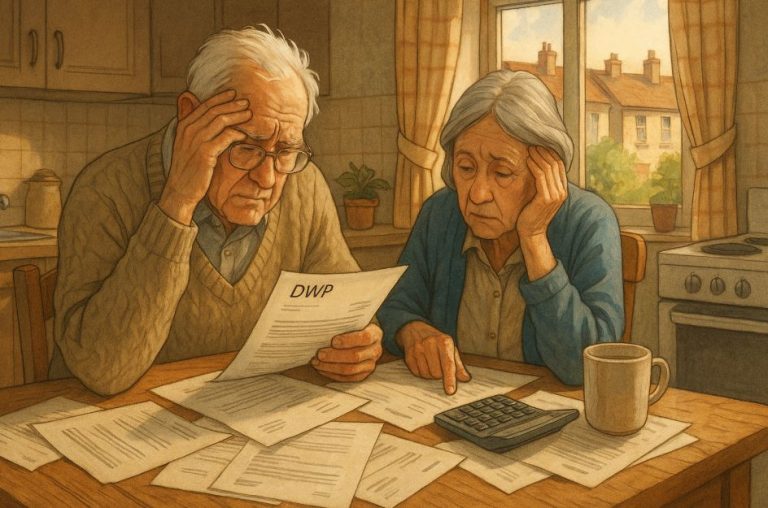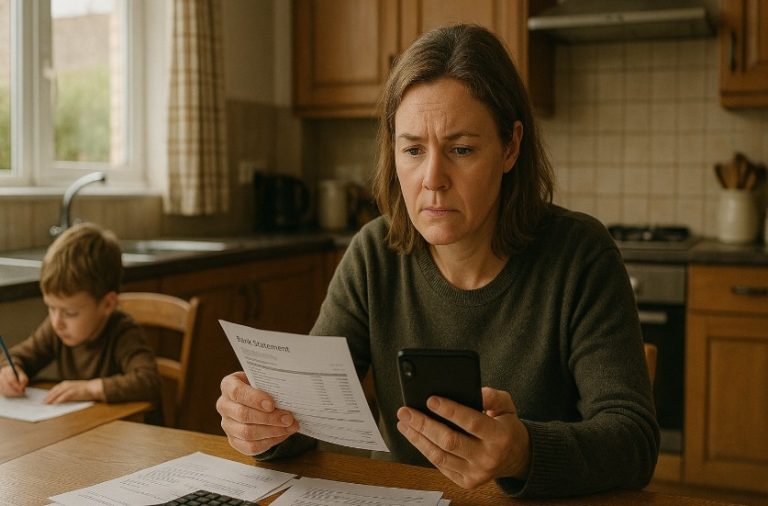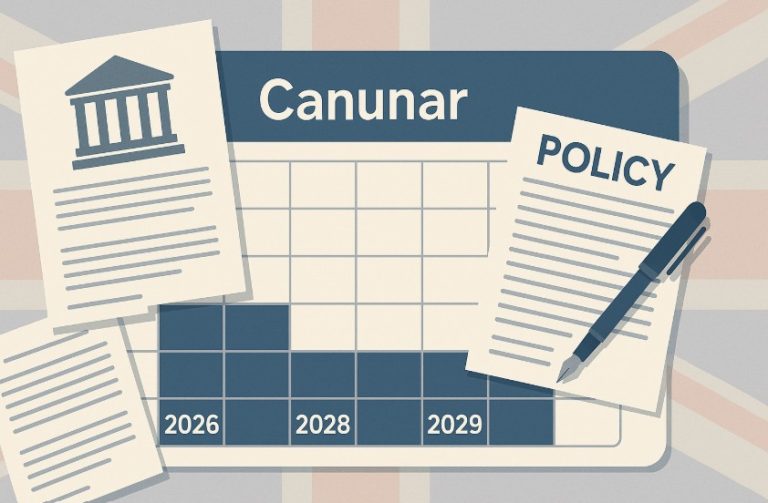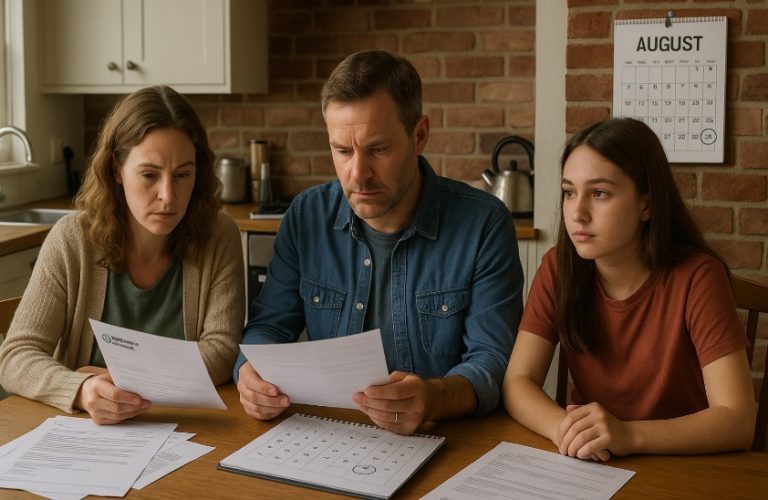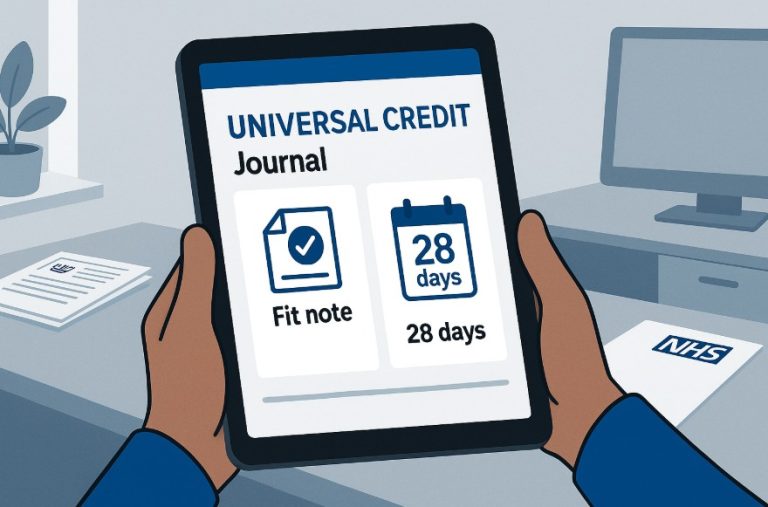Personal Independence Payment (PIP) is a vital benefit for many people living with long-term health conditions or disabilities in the UK. So, when PIP payments are unexpectedly delayed or stopped, it can be extremely stressful.
The Department for Work and Pensions (DWP) has various reasons for suspending or withholding payments, and understanding these is the first step towards resolving the issue.
This guide outlines the most common causes of missed PIP payments and the practical steps that can be taken to address them.
What Are the Most Common Reasons PIP Payments Are Delayed or Stopped?
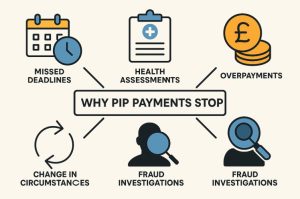
When Personal Independence Payment (PIP) payments stop or are delayed, it can cause significant concern and confusion for claimants who rely on this benefit to manage daily living or mobility needs.
While the Department for Work and Pensions (DWP) does send out letters explaining any decisions, many individuals find the wording unclear or don’t receive correspondence in time.
Understanding the most frequent reasons for PIP disruption is crucial to resolving the issue and ensuring continued financial support.
1. Failure to Return a Review or Renewal Form
One of the most frequent causes of delayed or stopped PIP payments is the claimant not returning a required form. This often happens when a review form, such as the ‘Award review – how your disability affects you’ form, is sent out close to the end of a fixed-term award.
If the DWP does not receive this form back within the required time frame (usually one month), they may assume the claimant no longer requires support, leading to automatic termination of the award.
Claimants might not even realise a form was sent, especially if they have changed address or had postal issues.
To prevent this, it’s important to:
- Inform the DWP immediately if your contact details change.
- Check mail regularly for official correspondence.
- Call the PIP enquiry line if you think you’ve missed or lost your review form.
2. End of a Fixed-Term Award
PIP is sometimes awarded for a fixed term (often one to three years), after which the payments automatically end unless a review process is initiated.
If you weren’t aware of your award’s expiration date or didn’t receive a reminder, your payments might stop suddenly.
In such situations:
- Check the original award letter for the end date.
- If no review was initiated, you will likely need to make a fresh claim.
- If your condition hasn’t improved, submit updated medical evidence when applying again.
3. Missed Medical Assessment
Claimants who fail to attend a scheduled medical assessment may have their payments stopped.
These assessments are often required during the initial application, renewal, or review process. Missing an appointment without informing the DWP can result in your case being closed.
Common reasons for missing assessments include:
- Illness or hospitalisation
- Lack of transportation
- Confusion about appointment time or date
If you’ve missed an assessment, it’s essential to contact the DWP as soon as possible. They may reschedule the appointment and reinstate your payments if a valid reason is provided.
4. Changes in Circumstances Notified to the DWP
If you notify the DWP of a change in your personal situation, such as improved health, changes in living arrangements, or extended travel abroad, they will reassess your eligibility for PIP. Some of these changes can result in reduced payments or complete ineligibility.
For example, PIP may stop if:
- You have moved abroad for more than 13 weeks.
- You’ve been admitted to hospital or a care home for an extended period (typically more than 28 days).
- Your health has improved to the point where your care or mobility needs no longer meet the criteria.
Even changes that seem minor could impact your award, so it’s advisable to seek advice before reporting a change, particularly if you’re unsure of its relevance.
5. Adverse Medical Assessment Outcome
Following a reassessment, the DWP may determine that your health condition has improved, and you no longer qualify for PIP, or that you should receive a lower rate.
This decision often comes after a face-to-face, video, or telephone assessment conducted by an independent healthcare professional.
If your award is altered or stopped based on this, you should:
- Read the decision letter carefully.
- Request a mandatory reconsideration within one month if you disagree.
- Collect new or updated evidence, such as medical reports or letters from health professionals.
Many claimants who challenge these decisions with solid evidence succeed in getting their payments reinstated or increased.
6. Suspension Due to Fraud Investigations
In cases where the DWP suspects fraudulent activity, they may suspend payments while conducting an investigation.
This could be triggered by anonymous tips, inconsistencies in submitted forms, or surveillance findings. If you’re being investigated, you may be asked to attend an Interview Under Caution (IUC) and provide evidence regarding your claim.
While this process can be stressful, it’s important to:
- Cooperate fully with investigators.
- Provide requested documents promptly.
- Seek legal or benefits advice if unsure of your rights.
If you are cleared of any wrongdoing, payments are usually reinstated and may be backdated to cover the period of suspension.
7. Deductions for Overpayments
If the DWP determines that you’ve been overpaid, whether due to administrative error or unreported changes, they may reduce or stop your current PIP payments to recover the debt. This can happen even if the overpayment wasn’t your fault.
If this occurs:
- Contact the DWP Debt Management Centre.
- Request a reduction in repayment amount if you’re struggling financially.
- Ask for a temporary suspension of repayments in cases of severe hardship.
The DWP has protocols to assist vulnerable claimants, especially if repayments threaten your ability to pay for essentials like rent, food, or utilities.
Summary of Common PIP Payment Issues and Actions;
| Issue | Description | Recommended Action |
| Review form not returned | Form required for continued eligibility not submitted in time | Contact DWP immediately and ask if you can still return it |
| Fixed-term award expired | PIP ends automatically at the end of the award period | Submit a new claim with up-to-date medical evidence |
| Missed medical assessment | Failure to attend DWP assessment leads to claim closure | Request rescheduling and provide valid reason for absence |
| Reported change in circumstances | Changes reviewed by DWP may alter or end your eligibility | Check if the change truly affects your claim; appeal if needed |
| Assessment result shows improvement | DWP decides condition has improved and stops payment | Request reconsideration with supporting evidence |
| Fraud investigation underway | DWP withholds payment during investigation into your claim | Cooperate and seek legal advice if needed |
| Overpayment recovery in effect | Payments reduced to reclaim previous overpayments | Contact Debt Management for repayment adjustments |
These common scenarios demonstrate the need for prompt communication with the DWP. In many cases, delayed or stopped PIP payments can be resolved if you act quickly, provide relevant documentation, and understand the reason for the disruption. Taking early action increases the likelihood of reinstating payments and minimising financial hardship.
Could a Missed Review Form Be the Reason Your PIP Stopped?
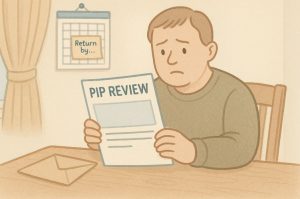
A significant cause for unpaid PIP is a failure to return the review form titled ‘Award review – how your disability affects you’.
This form is typically sent by the DWP before the award period ends and must be completed and returned within one month.
Claimants who do not submit this form in time risk having their payments suspended. In such cases, contacting the PIP enquiry line is vital.
The DWP may allow a grace period for the form to be returned. If they do, and you are still eligible, your payments could resume and be backdated to the stop date.
If the DWP does not accept a late return, the claimant may need to:
- Submit a new PIP claim immediately
- Consider appealing the decision if there’s a valid reason for the delay, such as a medical emergency or postal issue
If the appeal is successful, the DWP may reinstate and backdate the payments.
Did Your Fixed-Term PIP Award End Without a Review Notice?
Some PIP awards are issued for a fixed period. If no review form is sent prior to the award’s end, and no further steps are taken, the payments will stop automatically.
Claimants should be vigilant in checking their award letter, which outlines when the claim is set to end.
If a review form was never received and the condition remains the same, it is important to:
- File a new claim as soon as possible
- Explain the circumstances to the DWP
In contrast, if the review form was sent but you’ve received no response from the DWP after submitting it, contact them to verify receipt and get an estimated decision date.
Has the DWP Decided Your Condition Has Improved After an Assessment?
A reassessment may lead the DWP to conclude that the claimant’s health condition has improved.
This often happens following a face-to-face, phone, or video assessment by a healthcare professional. If this is the reason for the payment stoppage, you should receive a letter outlining the change.
In cases where you disagree with the decision, you are entitled to request a mandatory reconsideration. It is recommended to submit additional medical evidence such as:
- Letters from your GP or specialist
- Recent test results or hospital records
- Statements from carers or support workers
This evidence can strengthen your appeal and help restore payments.
Did You Miss a Scheduled Medical Assessment?
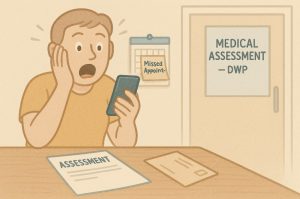
Failing to attend a medical assessment without informing the DWP beforehand usually results in a payment suspension.
If a legitimate reason exists for missing the appointment, such as illness or a family emergency, you can explain this to the DWP and request a new date.
If accepted, your assessment will be rescheduled, and if the claim is successful, payments may be reinstated from the date they were stopped.
If your explanation is not accepted, a new claim may be required. You can also appeal the decision, particularly if the absence was due to unavoidable circumstances.
Have You Recently Reported a Change in Circumstances?
Changes in your health, living arrangements, or travel history can influence your eligibility for PIP. Not all changes result in payments being stopped, but some do.
Examples of changes that may affect eligibility:
- Travelling abroad for more than 13 weeks
- Staying in a hospital or care facility for over 28 days
- Serving a prison sentence
- A substantial improvement in your condition
If you’ve reported a change and your payments have stopped, ensure the DWP correctly assessed the impact. If you believe there was a mistake, you can challenge the decision. If your circumstances later change again, you may be able to file a new claim or request a reinstatement.
Is Your PIP Being Withheld Due to Benefit Overpayments?
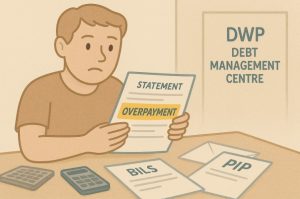
Another reason for unpaid PIP is the recovery of overpaid benefits. If the DWP identifies an overpayment, they may withhold or reduce your PIP to recover the amount.
Claimants facing this situation should:
- Contact the DWP’s Debt Management Centre
- Explain their financial hardship
- Request a reduced repayment rate or a temporary pause in recovery
The DWP may consider adjustments based on your financial situation.
DWP Overpayment Recovery Options:
| Option | Description | Action Required |
| Reduced Repayment | Lower deduction from future benefits | Contact Debt Management Centre |
| Temporary Suspension | Pause repayments in cases of severe hardship | Submit evidence of financial stress |
| Mandatory Reconsideration | Dispute the overpayment if you believe it’s incorrect | Provide documentation and file a formal request |
Has the DWP Suspended Payments Due to a Fraud Investigation?
If you are under investigation for suspected benefit fraud, the DWP can pause your PIP payments until the outcome is determined. This process usually starts with an invitation to an interview under caution (IUC).
During this period, the DWP may:
- Request evidence of your disability or condition
- Review your past claim submissions
- Interview witnesses or check surveillance
If no fraud is found, your PIP payments will resume, and any missed payments may be backdated. If the investigation finds a discrepancy, you may face penalties, repayment demands, or prosecution.
Are You Still Eligible for PIP After State Pension Age?
Claimants who reach the State Pension age during their PIP award can continue receiving the benefit if the claim was active before they reached that age.
However, those applying for the first time after reaching State Pension age may not be eligible and might need to apply for Attendance Allowance instead.
It is important to:
- Check your State Pension age using GOV.UK’s eligibility tool
- Confirm whether a new claim is valid under the rules
- Seek independent advice if there is uncertainty
What Should You Do If You’re Unsure Why PIP Was Stopped?
If you have not received a payment and no clear reason has been given, you should:
- Review all recent correspondence from the DWP
- Check for any missed calls or messages
- Call the PIP enquiry line to ask for an explanation
Using accessibility services such as Relay UK or video relay (for British Sign Language users) is also an option for those with communication needs.
What Happens During a PIP Claim Review Process?
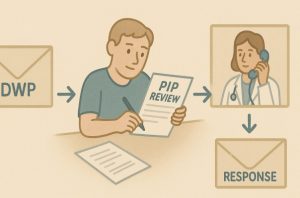
When a PIP claim is being reviewed, the DWP sends a form asking for updated information on your health and how it affects your daily life. This is a standard part of ongoing eligibility checks.
Key steps in the review process:
- You’ll receive the ‘Award review – how your disability affects you’ form
- Complete and return it within one month
- Attach any supporting medical or personal evidence
- The DWP may conduct a phone, video, or in-person assessment
- A decision letter is sent out explaining any change in award
Payments continue during the review process, but may be adjusted or stopped based on the new information provided.
Steps in the PIP Review Process:
| Step | Description |
| Receive Review Form | Sent prior to award expiration; outlines updated information required |
| Submit Form and Evidence | Must be returned within 1 month, with medical proof if available |
| DWP Evaluation | May involve further questions or medical reassessment |
| Decision Notification | Letter confirming award continuation, change, or termination |
How Can You Challenge a DWP Decision on Your PIP Claim?
If you disagree with a PIP decision, the first formal step is requesting a mandatory reconsideration. This allows the DWP to review the decision internally before escalating it to a tribunal.
To proceed:
- Submit the request within 1 month of the decision date
- Provide additional evidence supporting your claim
- Keep copies of all forms and correspondence
If the outcome remains unfavourable, the case can be escalated to an independent tribunal. Support from advocacy groups or legal advisors can be helpful during this stage.
What Are the Steps to Start a New PIP Claim If Yours Was Closed?
If your previous claim has ended and you’re still eligible, you can make a fresh application. This is often required when an old claim was closed due to a missed review, a health reassessment, or prolonged ineligibility.
Steps to start a new claim:
- Call the PIP new claims line or start online via GOV.UK
- Gather updated medical and personal evidence
- Complete and submit the new form accurately
- Attend any scheduled assessments
Ensure deadlines are met and forms are filled in correctly to avoid processing delays.
Conclusion
If your PIP has stopped or been delayed, the most important step is to identify the reason and act quickly.
Whether it’s a missed form, an expired award, or a reassessment outcome, understanding your situation enables you to take corrective action.
The DWP can provide clarification, and you always have the right to appeal decisions you disagree with. Staying informed and responsive will give you the best chance of restoring your PIP support promptly.
FAQs
What if I didn’t receive a review form before my PIP ended?
You should contact the DWP immediately. If your award has ended and no review form was sent, you’ll need to start a new claim.
Can I appeal a PIP decision if I missed the deadline?
Yes, but you must explain why the deadline was missed. The DWP may accept late appeals if there was a valid reason such as illness.
How long does it take for PIP payments to resume after a successful appeal?
If successful, back payments are usually made within a few weeks, but timelines vary depending on processing times.
Can I get backdated PIP payments if my challenge is approved?
Yes. If your appeal or reconsideration is successful, payments are typically backdated to the original decision date.
What happens to PIP if I move into a care home or hospital?
Stays longer than 28 days can affect your entitlement. It’s important to report this change to the DWP as soon as possible.
Will I be notified before my PIP stops or reduces?
Yes, the DWP usually sends a letter outlining changes. If you’ve not received one, contact them directly.
Who can help me fill out PIP review or appeal forms?
You can get help from Citizens Advice, welfare rights organisations, or a disability advocacy service.


